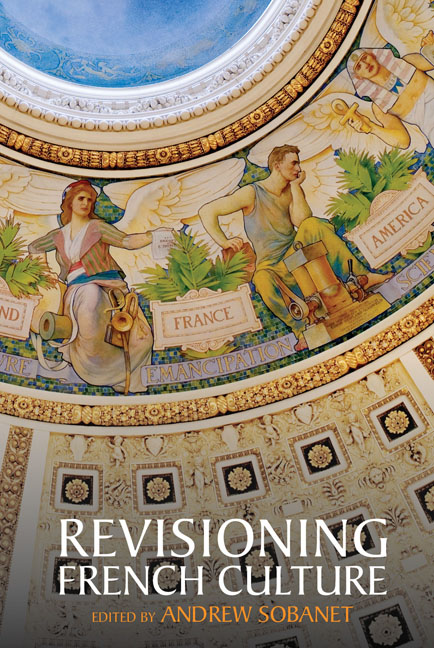Book contents
- Frontmatter
- Contents
- Introduction
- I France in Perspective: The Hexagon, Francophonie, Europe
- II Visions of the World Wars, or L’Histoire avec sa grande hache
- III Refractions and Reflections
- IV French Literature, Revisioned
- V The Subject in Focus
- VI Philosophical Lenses
- VII Coda
- Contributors
- Acknowledgments
- Index
14 - Rousseau's Late Botany: Living to the End
- Frontmatter
- Contents
- Introduction
- I France in Perspective: The Hexagon, Francophonie, Europe
- II Visions of the World Wars, or L’Histoire avec sa grande hache
- III Refractions and Reflections
- IV French Literature, Revisioned
- V The Subject in Focus
- VI Philosophical Lenses
- VII Coda
- Contributors
- Acknowledgments
- Index
Summary
J’herboriserai […] jusqu’à la mort.
Letter to Du Peyrou, February 28, 1769Jean-Jacques Rousseau's interest in botany has a complex genesis. I propose to investigate the varying contexts in which this interest arises over the course of Rousseau's life and works. His initial discovery of botany is first recounted in The Confessions: it was at Les Charmettes, the central locus of the author's childhood, where he enjoyed the happiness and protective company provided by Madame de Warens, the woman he simply called Maman. However, this interest proves to be brief, a missed opportunity of sorts, and botany becomes a catalyst for a flood of happy memories associated with a previous time, in Annecy. Indeed Rousseau becomes less engaged in the act of recalling botanical lessons (he hardly makes any effort in the description of the structures of the plants themselves) than in releasing the power of affective memory. Thus Annecy and Les Charmettes overlap in Rousseau's imagination. The botanical walk becomes the setting for the recollection of a dream experienced earlier at Annecy, a reverie in which Jean-Jacques's union with Madame de Warens remains suspended in eternity. He writes:
while I was gathering twigs of dry wood to make our coffee, mamma amused herself by herbalizing among the undergrowth, and with the flowers of the bouquet which I had gathered for her while we made our way she made me notice a thousand curious things in their structure which amused me very much and should have given me a taste for botany, but the moment had not come; I was distracted by too many other studies. An idea that happened to strike me diverted me from the flowers and plants. The situation of soul in which I found myself, everything we had said and done that very day, all the objects that had struck me recalled to me the sort of dream I had while wide awake at Annecy seven or eight years before.
Another scene deserves mention, also in The Confessions, one in which botany provokes a kind of revulsion in Rousseau.
- Type
- Chapter
- Information
- Revisioning French Culture , pp. 213 - 228Publisher: Liverpool University PressPrint publication year: 2019

